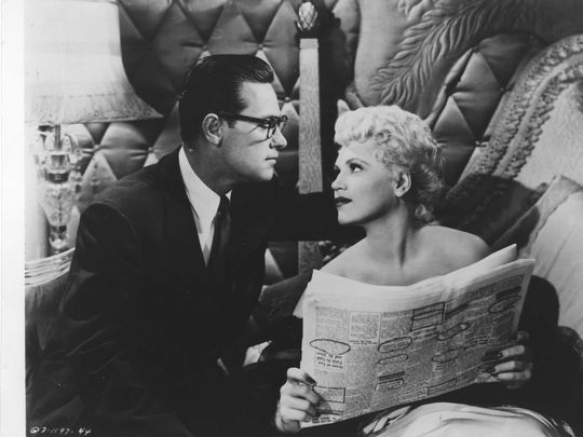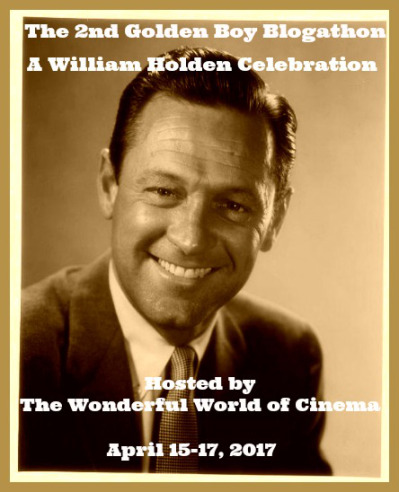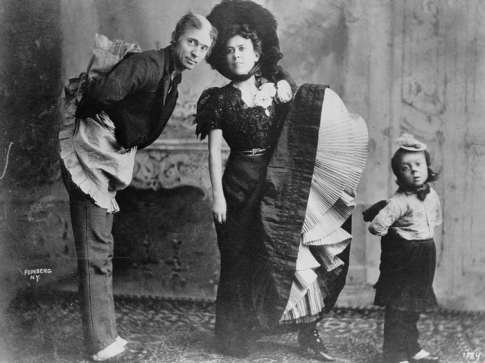I was invited to write a post on one of the most successful singing duos in Hollywood history. To be honest I knew next to nothing about the pair. Their heyday happened years before I was even born. The couple became famous near the end of the Great Depression (1929 – 1942). During those bleak days of the Depression, it must have been something wonderful to watch these two beautiful people singing their love songs while staring into each other’s eyes. Even by today’s standards, their on-screen chemistry is off the charts. It is no surprise that their movies were extremely popular and lucrative magnets for box office profits. They attracted millions of fans around the world, then and now.
Since it is Valentine’s Day, it is only fitting that the most appropriate Blogathon ever to celebrate Sweethearts is created for our film lovers. Of course, it is The Singing Sweethearts Blogathon hosted by Tiffany and Rebekah Brennan from Pure Entertainment Preservation Society (PEPS). To read more posts about MacEddy movies and their individual movies, please use the link below:
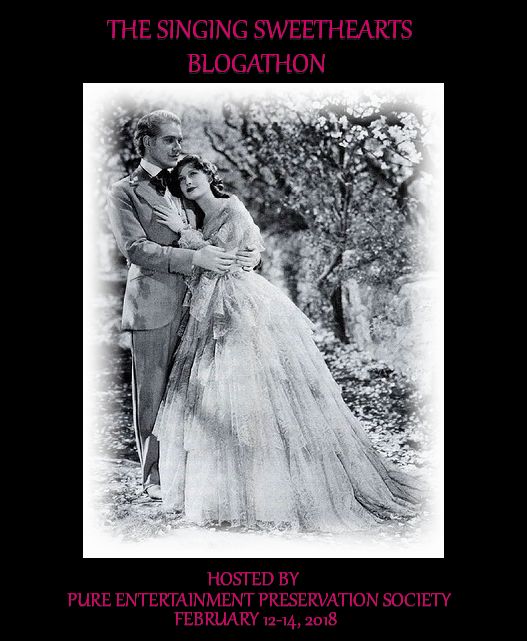
Jeanette MacDonald and Nelson Eddy made eight films together from 1935 – 1942. Of course, they were musicals; since both were trained opera singers. Eddy always considered himself a singer, first and foremost. MGM’s Louis B. Meyer couldn’t agree more. Eddy did not do well in his screen tests. As a matter of fact, before he starred in his first movie with MacDonald, he wanted out of his contract; so, he could return to his singing career. The shy Eddy felt out-of-place in Hollywood. Fortunately for Eddy, his smooth baritone voice could rival Andrea Bocelli tenor voice in beauty and expression. So, after a film career of 16 movies, he continued to give concerts. He performed literally to the day he had a stroke on stage and died hours later, in 1966. MacDonald had a lovely soprano voice; but her on-screen presence and her natural acting ability allowed her to make 28 movies. She was an established star before she made her first movie with Eddy.
I had no idea what a great actress she was; until, I watched my first and only “MacEddy” film: The Girl From the Golden West. Since viewing it a few times, I am a true fan now; and, I intend to binge watch their movies, together and individually.
History: The Girl From The Golden West And Opera
This is the fourth movie made (1915, 1923, 1930 & 1938) that is adapted from David Belasco’s play with the same title. In 1910, Giacomo Puccini turned this play into a popular Italian Opera, La Fraciulla Del West. If you don’t know Puccini, you don’t know opera. Even this gifted child of nine knows Puccini. Amira Willighagen sings on Holland’s TV show, You Got Talent: O Mio Babbino Caro (My favorite, Puccini song). Forgive me for this indulgence. Opera is passionate and full of gut wrenching emotion. To hear a song sung by a child that is basically a mother’s plea for the life of her child is completely overwhelming: That’s Opera! To understand the MacEddy movies, you have to appreciate the impact this genre of music had on their audiences.
With a sample of a Puccini opera piece and a bit of history, I hope it helps in understanding the appeal that these movies had on audiences of that time. It was a scary time: world-wide economic Depression with democracies failing and dictators seizing control. Opera is music that not only tells a tragic story but revels the raw emotions involved within that story. Please don’t underestimate the impact these songs had on the fans and audiences of that era. Opera has been described as the beautiful sounds and emotions of life itself.
The Movie: The Girl From The Golden West (1938)
This MacEddy movie is a musical western. It is not a cowboy musical western, like a Roy Rogers or a Gene Autry movie. This movie is concerns the dramatic movement to the West with all its dangers and mingling of diverse people and cultures. Granted this is an old Hollywood imaginary version of that era. This movie was also made with the watchful eye of the Hays’ Decency Code. So, the rating today would be probably be a G (General audiences) because no one is killed, no one says a curse word, and everyone is honorable, even the bad guys, in one way or another.
The First Thirty Minutes of this Two Hour Movie:
The movie begins with settlers in a wagon train moving west. All singing in chorus about their hopes for the future: Sun up to Sun Down🎶. It reminds me of another western musical, Paint Your Wagon (1969). In this film, they sang I’m on My Way 🎶. The two opening scenes are very similar in imagery and song. I would not be surprised if the opening scene from Paint Your Wagon was indeed influenced by this MacEddy film.
We see an elderly man who is driving the wagon. Beside him, is a little girl of 9 or 10. We learn from their conversation that the little girl, Mary, is an orphan. Her dying father, who was a gambler, asked his brother, Davy (Charlie Grapewin) to care of Mary and take her with him if he goes out west. Mary’s mother passed away before her father. Uncle Davy and the other settlers are alerted to break for camp since the Tom Tom of the Indians can be heard nearby. Once they gather around the camp fire, little Mary (Jeanne Ellis) breaks out in song: Shadows On The Moon🎶. It is a lovely lullaby taught to her by her mother.
As she sings, they are spied on by a Mexican bandit and boy (Bill Cody Jr.) around Mary’s age. They boy is mesmerize by the song and Mary. Just as Mary finishes her song, they are visited by a priest, Father Sienna ( H.B. Warner). He is impressed with Mary’s song and asked if she swallowed a canary. Mary, being a gambler’s daughter, laughs and claims: I bet ya a dollar that I didn’t.
The padre introduces himself and explains that he lives in a mission nearby. He asks Mary if she could sing for his parishioners in church one day. She promises that she would. Father Sienna explains his mission is to bring civilization to the Indians and bring information to civilization in order to help settlers cross through the wilderness and reach their destination. He pulls out a map to show them where they are in relation to the surrounding mountains and rivers. Some panicked Indian parishioners interrupt the priest. They explained that he must return to the mission immediately. General Ramirez (Noah Berry Sr.) and his men are there. Before he leaves, he warns the settlers to stay away from Ramirez because he is very dangerous man.
At the mission, Ramirez and his rowdy men are drunk. The boy seen earlier spying on the settlers is with them. The General begs the boy, Gringo, to sing for the men. They love to hear him sing. However Gringo is reluctant. The General teases him about mooning over the singing little girl (Mary). The General then persuades Gringo to shoot a sheep with his bow and arrow. If he kills it in one shot, he will give him a medal. Gringo kills the sheep and earns his medal. He then sings a song of camaraderie: Soldiers Of Fortune🎶.
When Father Sienna finds his dead sheep with an arrow shot through its body, he angrily says to General Ramirez: Since when are soldiers warring with sheep? The priest demands to know who killed his sheep. Gringo steps up and proudly admits guilt. Father Sienna is impressed with the boy’s courage and honesty. He explains that violence and killing can be avoided and that there is a better way. Gringo’s heart is moved; and, he agrees with the priest against Ramirez’s objections. The priest gives Gringo a cross pin. He says it is a medal of a different kind. The General angrily takes his medal back from the boy and explains to the Padre: If I do not take the medal from the boy when he does something bad, I will run out of medals to give him when he does something good.
An Indian chief complains to Father Sienna that if the land belongs to his people why are the people trying to settle there. The General yells that the settlers want to take the land and kill all of them. He demands that Gringo repeat what he said to the chief in his language. Gringo refuses to tell the chief what the General said.
To prove to Gringo he is willing to try to accept the new settlers in an act of friendship, the General and his men decide to pay them a visit. The settlers mistake them for warring Indians. They shoot at them and fatally wound the General. They make it back to the mission. As the dyng General ridicules Father Sienna, Gringo sadly sings, Soldiers Of Fortunes for the last time. Gringo is so angry with the priest, he ripped his gift pin off his shirt and tosses it to the ground.
The Set up For The Rest of The Movie
The Movie moves from a wagon train, to years later in a small gold mining town, Cloudy Mountain in California. It is here, we find our heroine, Mary Robbins aka “Girl” (Jeanette MacDonald). She is the sole owner of the Polka, a saloon. She is also one of the very few women in town and only single white woman. Yet, our miners are respectful of the Girl while they enjoy camaraderie, boozing, and gambling in her establishment. They also trust her with all their gold and money; until, the coach comes; and, they can send it on to banks for safe keeping.
It is here, Mary talks to one of her admirers, gambler and Sheriff Jack Rance (Walter Pigeon). Pigeon is perfect as the charismatic handsome but dangerous gambler turned Sherriff. He just shot at a man for trying to cheat him at cards. When Mary sees him sitting alone with a deck of cards, she notices his recently used gun displayed on top of the card table. She asks Jack: What’s the gun for? You afraid of cheating yourself? Mary is witty, beautiful and smart. MacDonald adds a western accent and movements to her character. She walks around in long strides; and, her steps are more like stomping around. She convincing embraces the core of her mountaineer character.
Mary obviously understands her power over the men folk; and, she uses it. She also has another admirer, the town blacksmith, Alabama (Buddy Ebsen). Unlike the Sheriff, he knows his love for Mary can only stay within the friendship mode. The friendship is affectionate and warm. Ebsen better known for his TV roles in The Beverly Hillbillies and Barnaby Jones.
Sheriff Rance sends Alabama to fetch the girl because he has a surprise for her: a piano pronounced: Pie-And- nee. Alabama approaches Mary playing a fife. Mary sings the lovely tune: The Wind in The Trees🎶Which is one of the my favorite songs in the movie. Later in the movie, Ebsen will sing solo in another great song: The West Ain’t Wild Anymore🎶.
Meanwhile, a Robin Hood type of bandit, Ramirez (Nelson Eddy) and his outlaw gang are causing fear and unrest amongst the settlers in the region. Ramirez is a white man whose parents was killed by the Indians when he was a small child. He is Gringo all grown up. He and his gang enjoy singing their song: Soldiers of Fortune. Eddy is a tall, blonde and wholesome handsome. He resembles Armie Hammer in The Lone Ranger. He is easy on the eyes and he is likable. He is at his best when he is singing or sharing the screen with MacDonald.
Ramirez is popular with the ladies but he is not “in love” with anyone. But, that doesn’t mean he doesn’t have his favorites, like Nina Martinez (Priscilla Lawson). He keeps love coaching his right hand man, Mosquito (Leo Carrillo) to not get tied down with love; besides, it messes with your criminal career.
That is until; he robs a coach on its way to Monterey. This coach has a very special passenger: Mary. She travels to Monterey every year to sing in Father Sienna’s church. She has done this since she was a child. On this trip she is singing, Ava Maria🎶
Honesty, the scenes between Eddy and MacDonald are the best part of the movie. He outrageously flirts; and she; is witty and sassy. Their whole exchange is truly funny and sweet. In other words, the sparks fly with these two. If Eddy is not a great actor, he had to be completely enamoured with MacDonald off-screen. This kind of chemistry is flawless and timeless. Not since Jane Austen‘s Elizabeth Bennett and Fitzwilliam Darcy in Pride and Prejudice has there been such heated sexual undertones. I ask you, how can a man pointing a gun at you while he is robbing you be so dang charming?

I don’t like spoilers; so, you just have to watch and enjoy the MacEddy banter in the movie for yourself. Despite being in dire straits, Mary does not show her fear; since, she knows Sheriff Rance sent a posse for her protection, and probably, for the gold too. When Mary hears horses arriving, she triumphantly announces to Ramirez that he and his men are caught. However, as the posse arrives, Mary soon realizes that the posse is actually prisoners of Ramirez’s men.
As Ramirez continues to rob the people of the coach, he believes he is chivalrous when he allows Mary to keep her necklace from her mother, and her dresses for her performance at the Church. Also, he tolerates and jokes with her concerning her “sassy mouth.” So, he continues to flirt with her; until, Mary gives him a parting gift: A sound slap across the face from the window of the “just leaving” coach. Mosquito and the men are shocked that Ramirez allowed Mary to “get away with that.” Ramirez seemed shocked too. He then tells Mosquito to ride with him into Monterey. They will go as visitors; since, no one knows what Ramirez looks like. Once there, Ramirez plans to locate Mary in order to repay her for the slap.
He finds Mary in the Father Sienna’s Church as she sings Ava Maria.
Upon hearing Mary sing, Ramirez remembers that she is the little girl who sang that beautiful song around the camp fire years ago. He never forgot the song nor the lovely voice that sung it. Ramirez is now in full blown, “I am madly in Love” mode. After Mary’s performance, he overhears the Governor inviting her to a ball that evening. He tells her he will send an Army officer to escort her. Ramirez seizes his chance. So, he “borrows” an Army uniform to escort Mary, while at the same time, he uses his birth name, Anderson. So, Lieutenant Anderson escorts Mary to the celebration; so that he might have the opportunity to woo her.
During the celebration, one of the best dance scenes at that time is filmed, The Mariache 🎶 sung by Eddy. Again, I think this movie may have influenced another Western musical. That movie had one of most memorable dance scenes in film history. The barn raising dance scene in Seven Brides For Seven Brothers (1954).
After spending the evening with Mary, Ramirez/Anderson wants to tell her the truth about himself. So, he follows her to Cloudy and finds her. In order to woo Mary properly, Anderson/ Ramirez must sing a love song. This clip is an example of MacEddy’s mutual chemistry and his beautiful voice. The song is Who are we to say🎶. Near the end of this clip, Alabama (Edsen) appears. Also, at the end of this clip, I think MacDonald is fascinating to watch.
He is also introduced to Sheriff Rance who had previously asked Mary to marry him. Rance is none to friendly with this new rival for Mary’s attention. Plus, he is furious that his posse failed to capture Ramirez. So, Rance has set a trap for Ramirez. He put a $10,000 award for his capture and is luring him to the saloon to steal more gold.
No one knows what Ramirez looks because he covers his face and speaks with an accent during his robberies. However, Mary will soon learn the truth about the Lieutenant Anderson’s identity.
The last forty minutes of this movie moves very fast. It involves lynching, sacrifice, lost love, gambling for love and life, and of course the power of True love. As I said before when I began this post, I knew very little of this phenomenal coupling of Jeanette MacDonald and Nelson Eddy. Now, that I do, I am so thankful to Tiffany and Rebekah Brannan at PEPS. This particular movie is not a fan favorite like Maytime (1937) or Rose Marie (1936); but, this and their five other movies are dearly loved.
Besides, the fact the movie is a bit dated, my only complaint would be that it was too long, at two hours. They must have had a terrible time trying to edit this film; since, they would delete all the scenes with Roy Bolger ( The Tin Man in Wizard of Oz) as a character named Happy Moore. Despite the length of the movie, it is still enjoyable.
The story in this film is so appealing that it not only inspired a play, but an Opera, four movies, and finally a novel too. In addition to this movie, there are seven more movies starring these singing Sweethearts for your viewing pleasure. I hope, if you have not seen a MacEddy film, you give yourself a treat, and enjoy the escapism of their extremely entertaining films.
Happy Valentine’s Day💞
Reference Links:
Original 1938 Trailer for The Girl From The Golden West:
http://www.tcm.com/mediaroom/video/70093/Girl-Of-The-Golden-West-The-Original-Trailer-.html
Nelson Eddy Biography:
http://www.imdb.com/name/nm0248904/bio
Jeanette MacDonald Biography:
http://www.imdb.com/name/nm0531776/
Paint Your Wagon (1969):
http://www.imdb.com/title/tt0064782/
Seven Brides For Seven Brothers:




















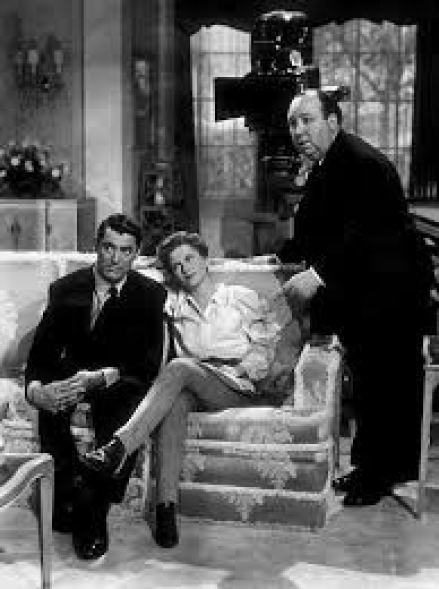

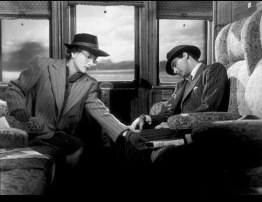














































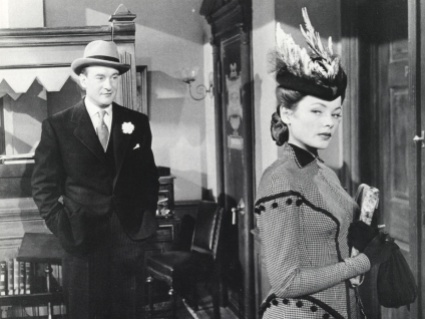






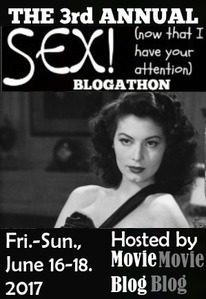



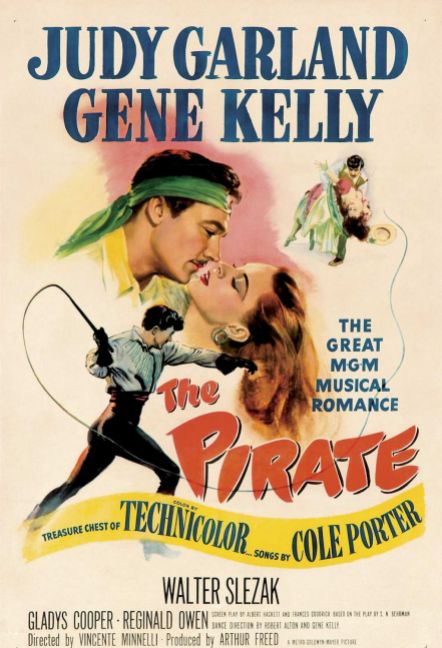











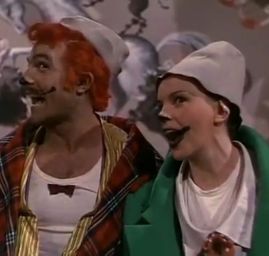












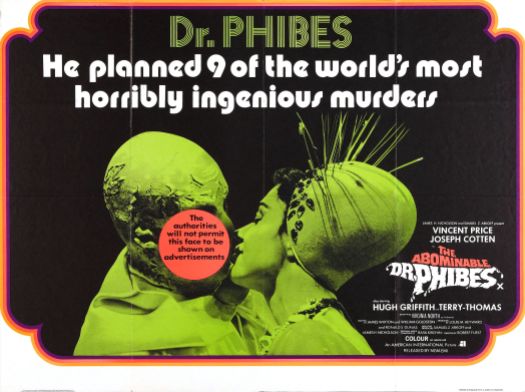









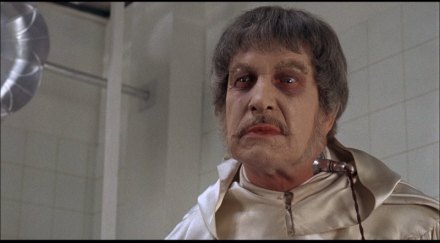














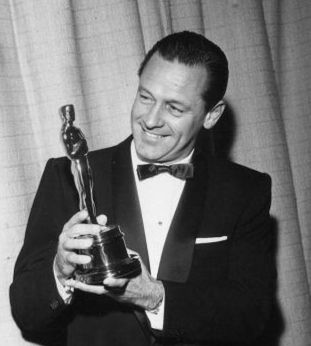
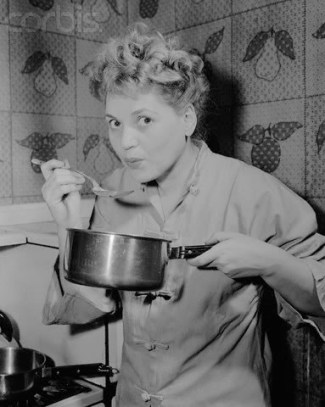




![10000161H12213774[1] 10000161H12213774[1]](https://lifesdailylessonsblog.files.wordpress.com/2017/04/10000161h1221377412.jpg?w=378&resize=378%2C278&h=278#038;h=278)





